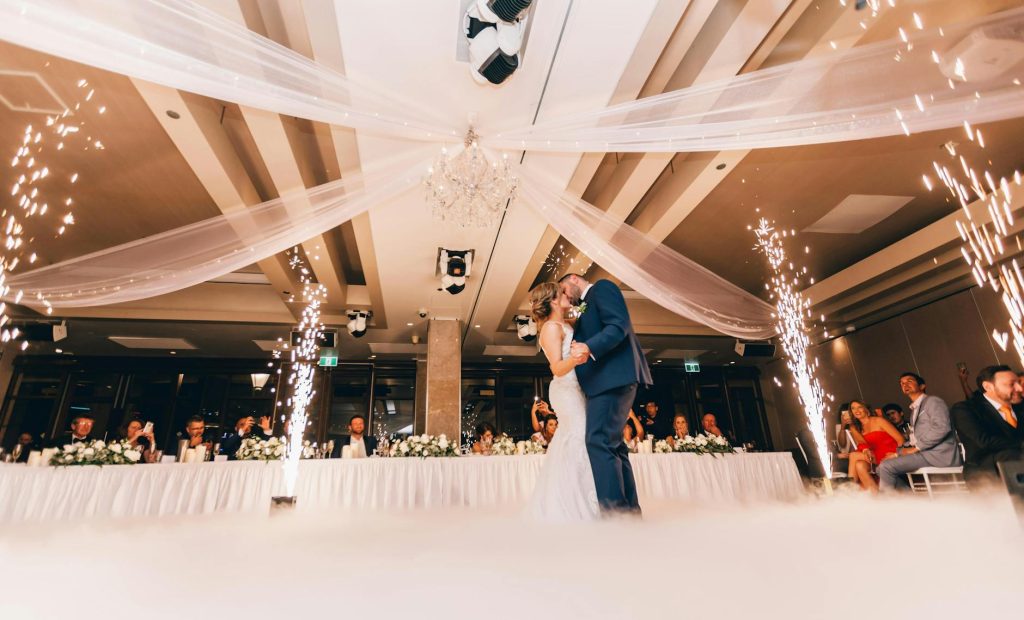
Image source: pexels.com
Getting married is a huge milestone, and it often comes with big emotions and even bigger changes. For many newlyweds, the excitement of starting a new life together can have an unexpected side effect: spending more than they planned. Overspending after marriage is common, and it can create stress right when couples hope to be enjoying their new partnership. Understanding why couples overspend right after getting married can help prevent money arguments and set the stage for a healthy financial future. This topic matters because early financial habits can shape a couple’s relationship for years to come. If you’re about to tie the knot or just said “I do,” being aware of these reasons can help you avoid common pitfalls and start your marriage on solid ground.
1. The Emotional High of Newlywed Life
Marriage often feels like the start of a new chapter, and that emotional high can cloud judgment. After the wedding, couples may feel entitled to treat themselves. They might think, “We deserve to celebrate!” This mindset can make it easy to justify expensive dinners, weekend getaways, or big purchases. Overspending after marriage sometimes happens because couples want to keep the celebration going or match the happiness they feel with new things. The dopamine rush of making memories or buying things together can be powerful, but it can also lead to budget blowouts if left unchecked.
2. Pressure to Build the Perfect Home
Once the wedding gifts are unwrapped, many couples feel pressure to create a picture-perfect home. Social media and friends’ expectations can add to this urge. Suddenly, upgrading furniture, buying new appliances, or redecorating every room seems urgent. Overspending after marriage often starts with these well-intentioned home improvements. Couples might not realize how quickly costs add up—especially when they want their home to reflect their new status as a married couple. In reality, building a comfortable home takes time, and it’s okay to start small.
3. Combining Finances Without Clear Communication
Money is a sensitive topic, and it’s easy for misunderstandings to occur when merging finances for the first time. Some couples avoid detailed conversations about spending habits, debt, or financial goals. Without clear communication, one partner may assume it’s fine to splurge, while the other feels anxious about every purchase. This disconnect can quickly lead to overspending after marriage, as each person has different expectations or comfort levels with money. Honest talks about budgets, priorities, and limits are crucial to avoid surprises and resentment down the road.
4. Gifting and Social Obligations
After getting married, couples often find themselves invited to more social events, family gatherings, or parties. There’s a natural desire to reciprocate the generosity shown during their own wedding. Buying gifts, hosting dinners, or attending out-of-town events can all lead to extra expenses. Overspending after marriage can sneak up through these social obligations, especially if couples feel pressured to keep up appearances or return favors. Setting boundaries and budgeting for social events can help keep spending in check without sacrificing relationships.
5. Underestimating Post-Wedding Expenses
Many couples focus so much on the wedding that they forget about the costs that come afterward. Things like moving expenses, legal paperwork, name changes, or even thank-you cards can add up. Sometimes, couples take on new financial commitments, like joint insurance policies or shared subscriptions, without updating their budgets. Overspending after marriage happens when these smaller, unexpected expenses aren’t planned for. Creating a post-wedding budget and tracking every new expense can help avoid surprises.
6. Trying to Maintain a Certain Lifestyle
It’s easy to fall into the trap of trying to keep up with friends, family, or influencers. After marriage, couples may feel pressured to meet certain expectations—such as traveling more, dining at trendy restaurants, or wearing nicer clothes. Overspending after marriage can stem from wanting to show the world that you’re thriving as a couple. This external pressure can be subtle but powerful. Remember, everyone’s financial situation is different, and comparison can quickly derail your budget.
7. Not Having a Joint Financial Plan
One of the most common reasons for overspending after marriage is not having a joint financial plan. Without shared goals or an agreed-upon budget, spending can become scattered and impulsive. It’s easy to swipe a card without thinking about how it fits into the bigger picture. Couples who set clear priorities—like saving for a house or paying off debt—are less likely to go overboard. Taking time to create a plan together helps build trust and keeps spending aligned with your values.
Building Healthy Financial Habits as Newlyweds
Overspending after marriage doesn’t have to be a rite of passage. By recognizing the most common triggers—like emotional highs, social pressures, and lack of communication—couples can take proactive steps to manage their money together. Start by having honest conversations about spending, setting realistic budgets, and making a plan for both big purchases and everyday expenses.
Every couple’s journey is different, but learning how to avoid overspending after marriage can lay the groundwork for a strong financial future. Remember, it’s not about depriving yourselves; it’s about making choices that support your goals and happiness together.
What challenges have you faced with spending after getting married? Share your experiences or tips in the comments below!
What to Read Next…
- Why Are More Couples Using Prenups After Getting Married?
- 10 Signs You’re Living Above Your Means Without Realizing
- Are These 6 Helpful Budget Tips Actually Ruining Your Finances?
- 7 Signs Your Marriage and Finances Are Quickly Failing
- 10 Ways You’re Wasting Money Just Trying to Keep Up Appearances

Travis Campbell is a digital marketer/developer with over 10 years of experience and a writer for over 6 years. He holds a degree in E-commerce and likes to share life advice he’s learned over the years. Travis loves spending time on the golf course or at the gym when he’s not working.
Leave a Reply